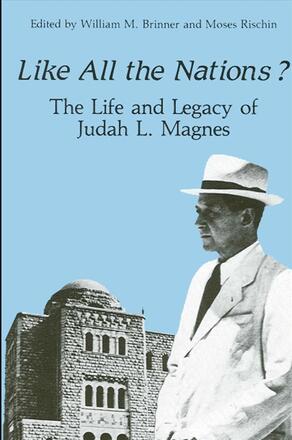
Like All the Nations?
The Life and Legacy of Judah L. Magnes
Alternative formats available from:
Description
This is the first study to examine the career of one of the most prominent American Zionists. Intellectually brilliant, socially and religiously committed, Judah Magnes was an inspiring speaker, reformer, and organizer. Sixteen leading American and Israeli scholars here focus their critical attention on the social, cultural, political, and theological themes central to Magnes' life.
Contributors chronicle Magnes' life from his birth in California in 1877 to his death in 1948—the year of the founding of the State of Israel, focusing successively on his youth and education, his seminal years on New York's Lower East Side, his place among the pioneers of American Zionism, his role as a founder of the first Hebrew University, and his relentless efforts to unite Arabs and Jews. Magnes was deeply committed to a Jewish renaissance, but did not see the prospering of Israel in isolation from its Arab peoples. In this insistence he was constant, and often unique. It is particularly in retrospect that we now realize the importance of Magnes' insistence that the Arab problem must be solved in order to establish a viable Israeli state. Both through the range of his involvements and the integrity of his quest, Magnes has left his mark on Jewish history. The contributors to this volume, who include two of the most diligent scholars of the man and of his times—Paul Mendes-Flohr and Arthur Goren—help illuminate the life, work, and legacy of Judah L. Magnes.
William M. Brinner is Professor of Near Eastern Studies at the University of California, Berkeley. He is the editor and translator of Volume 2 of The History of al-Tabari titled Prophets and Patriarchs, also published by SUNY Press. Moses Rischin is Professor of History at San Francisco State University and Director of the Western Jewish History Center of the Judah L. Magnes Museum in Berkeley.